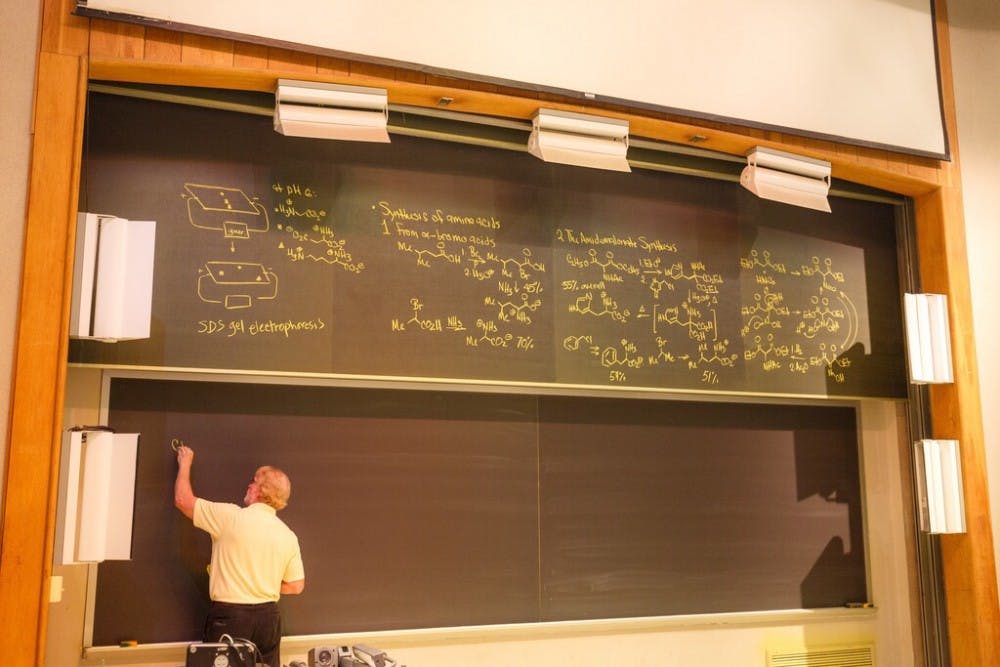The aftermath of the Feb. 14 mass shooting at Stoneman Douglas High School has highlighted this country’s inability to agree on measures to prevent mass gun violence. Amongst a bevy of mass shootings — 49 this year alone — the atrocity in Parkland, Fla. stood out in large part due to its magnitude. During this tragedy, 17 individuals were murdered, and many others were injured, in an extremely garish fashion. Last week, President Donald Trump let it be known that his solution to the problem of mass gun violence in schools was to arm teachers and school staff. To this end, Florida lawmakers have already approved a bill which would appropriate $67 million toward training teachers to carry guns, place guns with 10 teachers in every school and “cover the costs of background checks, drug testing and psychological exams.”
There are plenty of logistical reasons to reject this proposal. On an administrative level, there have already been cases made that school-based police officers actually intensify the school-to-prison pipeline, or that increased police presence on school campuses won’t actually fix the problem. Many suggest that the proposed policy would come at the cost of providing schools with the necessary resources to fulfill their academic function. However, I also believe this policy and how it has been presented, represent a moral harm to society by undermining the justice and quality of life which the United States owes its citizens.
The first way in which the policy perpetuates a moral wrong is by being a reapplication of previously failed attempts at state-sanctioned force. Given the nature of policing in this country, it’s hard to imagine the training under this new policy being functionally dissimilar from what guides the practices of active law enforcement. This reapplication is a problem given the brutal way these norms have been applied by police historically. Whether it be capital punishment or police violence, a disproportionate amount of these state-sanctioned killings victimize members of minority communities. The self-preservatory bent of police training coupled with the inevitability and ubiquity of racial prejudice in this country makes run-ins with state-trained shooters an existential affair for members of minority communities. By arming teachers, these brutalizing power structures would be reaffirmed in a school setting, where minority students have no real recourse.
The second moral harm lies in the way President Trump has advanced this policy by focusing on individuals with mental health issues. People with mental illness represent a social minority in this country, as well as some of its most vulnerable and disadvantaged citizens. The proposed policy perpetuates a myth about mental illness and violence, while harmfully implicating mentally ill people as an object of focus in deterring mass gun violence. While some data might suggest a controversial link between the presence of mental illness and the likelihood of committing gun violence, the proposed policy ignores the fact that guns, not mentally ill people, are the common denominator when it comes to mass violence on a global scale. Moreover, by making the link between gun violence and mental health issues explicit, the policy would be effectively arming teachers and priming them to look for individuals who express mentally ill behaviors. There is a compelling, and far less contestable, case to be made that this only makes conversations about mental health and preventing gun violence more practically difficult.
Finally, the proposed policy represents a type of narrative injustice done unto the Parkland victims by questioning their experiences and advancing a policy which the Stoneman Douglas students and school superintendent have explicitly rejected. When an entire community of people is brutalized, this type of justice cannot be understated. When done in good faith, narrative justice is often the last defense against opportunistic parties who inflict harm by politicizing the tragedy or scapegoating its cause. For example, the experiences of victimized black and brown communities have been erased under an unequally apportioned “terrorist” or “violent extremist” narrative. Consequently, they, and other minority communities, rarely see their concerns reflected in policy. This same process is unfolding with these high school students, and it represents a real harm to the victims who survived this tragedy.
Training teachers to be state-trained agents is a harm to those who are already victims of state-sanctioned violence as well as America’s public school system. Our country should task itself with being proactive in solving the more systemic issues which may lead to gun violence — access to high-level assault rifles as well as increased poverty and its effects just to name a few — rather than advance a useless policy proposal. Proposing to arm teachers reneges on a fundamental moral responsibility which a state has to its citizens, and exacerbates the plight to which it already subjects its most disadvantaged.
Adam Beddawi is a fourth-year College student and a member of the Minority Rights Coalition.







